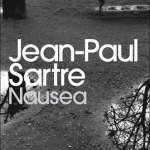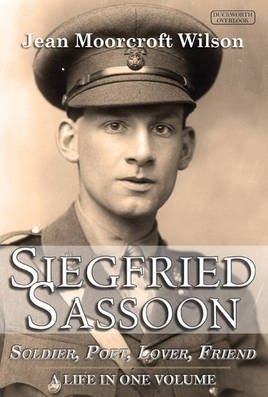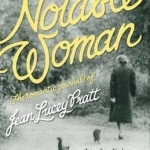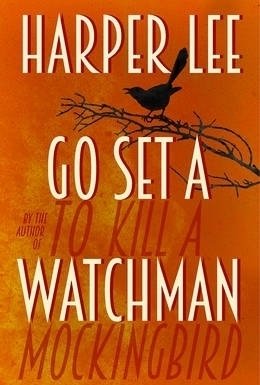Hazel (1853 KP) rated A Notable Woman: The Romantic Journals of Jean Lucey Pratt in Books
May 25, 2017
Whilst researching a previous book, Simon Garfield came across the diaries of Jean Lucey Pratt amongst journals collected during the Second World War for Mass Observation. Intrigued by her observations and character, Garfield became determined to learn more about her. After eventually receiving permission from Jean’s niece, he was able to read all forty-five of her diaries, edit them, and produce this huge manuscript for publication: A Notable Woman.
Jean began writing her journals in the April of 1925 at the young age of fifteen. Although she did not write everyday, she continued putting down her thoughts and experiences up until her death in 1986. Jean Lucey Pratt was not a celebrity, although she did write an, unfortunately, unsuccessful book; nor did she achieve anything spectacular during her lifetime. What makes her diaries worth publishing is the fact that she was “ordinary,” a woman who wrote not to impress other people, but to honestly express her emotions and opinions.
For the majority of her life Jean lived on her own in Burnham Beeches, Buckinghamshire, where she yearned for a husband. Her dreams of finding the perfect man yet only attracting a handful of lovers is both amusing and saddening. The most interesting part of her written records, however, has got to be the experiences of war. Unlike other diarist such as Anne Frank, who feared for their lives, or those that experienced the fighting up front, Jean provides the perspective of the average British citizen. She comments on the rationing, the blackout curtains as well as the political propaganda, providing her own opinions, which often changed as the war progressed. Jean amuses the reader by revealing she often slept through an air raid, only waking up at the sound of the All Clear.
The war ends midway through the book, thus delivering accounts of the latter half of her life, from career to ill health, incorporating in family events and, of course, her enormous horde of cats. Although a rather introverted, lonely individual, Jean’s relationship and love for her brother is often heartwarming. Separated by oceans and only seeing him every so many years, it is clear that the siblings are strongly supportive of each other. Jean often refers to her brother as Pooh (as in Winnie the Pooh), to which he responds by calling her Piglet.
Initially Jean did not intend to let anyone read her diaries but later began to imagine how other people would react to what she had written. She toyed with the idea of posthumous publication, but presumed only family and friends would read them – how wrong she was! Regardless of whether her diaries were to be viewed by outsiders or not, Jean usually referred to people by their initials. Whether she did this for a particular reason or merely to save time when writing remains debatable, however it does cause a bit of confusion when reading. Helpfully the editor, Garfield, has provided a character list that can be referred back to as needed.
Simon Garfield has done a magnificent job of compiling the diary entries together to produce an interesting, moving and occasionally amusing story about life during the 1900s. He has painstakingly sorted through handwritten entries, deciding what bits to omit and conducting further research in order to explain in footnotes the sections or references that would not make sense if left alone. Garfield has made the majority of Jean’s journals flow like a novel, only becoming erratic towards the end of her life when she would only write once every few months.
A Notable Woman gives a fantastic insight into the lives of ordinary people during an era of hardship and change. Readers are more likely to read an accurate description of the war and subsequent years in this book than in any emotionally detached textbook or biased account. Without a doubt this book is worth a read, although do not expect to be able to rush through it as some may do with a work of fiction. Garfield if highly praised for his efforts, and one hopes that Jean would be proud to finally have a writing success.
Hazel (1853 KP) rated A Notable Woman: The Romantic Journals of Jean Lucey Pratt in Books
Dec 7, 2018
Whilst researching a previous book, Simon Garfield came across the diaries of Jean Lucey Pratt amongst journals collected during the Second World War for Mass Observation. Intrigued by her observations and character, Garfield became determined to learn more about her. After eventually receiving permission from Jean’s niece, he was able to read all forty-five of her diaries, edit them, and produce this huge manuscript for publication: <i>A Notable Woman</i>.
Jean began writing her journals in the April of 1925 at the young age of fifteen. Although she did not write everyday, she continued putting down her thoughts and experiences up until her death in 1986. Jean Lucey Pratt was not a celebrity, although she did write an, unfortunately, unsuccessful book; nor did she achieve anything spectacular during her lifetime. What makes her diaries worth publishing is the fact that she was “ordinary,” a woman who wrote not to impress other people, but to honestly express her emotions and opinions.
For the majority of her life Jean lived on her own in Burnham Beeches, Buckinghamshire, where she yearned for a husband. Her dreams of finding the perfect man yet only attracting a handful of lovers is both amusing and saddening. The most interesting part of her written records, however, has got to be the experiences of war. Unlike other diarist such as Anne Frank, who feared for their lives, or those that experienced the fighting up front, Jean provides the perspective of the average British citizen. She comments on the rationing, the blackout curtains as well as the political propaganda, providing her own opinions, which often changed as the war progressed. Jean amuses the reader by revealing she often slept through an air raid, only waking up at the sound of the All Clear.
The war ends midway through the book, thus delivering accounts of the latter half of her life, from career to ill health, incorporating in family events and, of course, her enormous horde of cats. Although a rather introverted, lonely individual, Jean’s relationship and love for her brother is often heartwarming. Separated by oceans and only seeing him every so many years, it is clear that the siblings are strongly supportive of each other. Jean often refers to her brother as Pooh (as in <i>Winnie the Pooh</i>), to which he responds by calling her Piglet.
Initially Jean did not intend to let anyone read her diaries but later began to imagine how other people would react to what she had written. She toyed with the idea of posthumous publication, but presumed only family and friends would read them – how wrong she was! Regardless of whether her diaries were to be viewed by outsiders or not, Jean usually referred to people by their initials. Whether she did this for a particular reason or merely to save time when writing remains debatable, however it does cause a bit of confusion when reading. Helpfully the editor, Garfield, has provided a character list that can be referred back to as needed.
Simon Garfield has done a magnificent job of compiling the diary entries together to produce an interesting, moving and occasionally amusing story about life during the 1900s. He has painstakingly sorted through handwritten entries, deciding what bits to omit and conducting further research in order to explain in footnotes the sections or references that would not make sense if left alone. Garfield has made the majority of Jean’s journals flow like a novel, only becoming erratic towards the end of her life when she would only write once every few months.
<i>A Notable Woman</i> gives a fantastic insight into the lives of ordinary people during an era of hardship and change. Readers are more likely to read an accurate description of the war and subsequent years in this book than in any emotionally detached textbook or biased account. Without a doubt this book is worth a read, although do not expect to be able to rush through it as some may do with a work of fiction. Garfield if highly praised for his efforts, and one hopes that Jean would be proud to finally have a writing success.
Whatchareadin (174 KP) rated Go Set A Watchman in Books
May 10, 2018
Jean Louise Finch is 26 and currently living in New York City. She returns home to Maycomb Alabama to visit her beau, Henry Clinton, and her father Atticus Finch. In this visit Jean Louise "Scout" learns more about her family and the town she grew up in and especially about herself. Scout still has her same tomboy mannerisms we all love, doing whatever she wants to do and not caring what others think.
Jean Louise is one who just sees people and not so much color. Living in the South during this time, it's hard to make that distinction. She thought her father was the same. I see him as a man who vows to always do the right things no matter who the person. Atticus and Scout get the opportunity to get to know each other as adults with their own opinions and ideas, they discover they are alike in many way and in way very different.
It's interesting to see the dynamic between a parent and a child after they are both adults. And the child is able to think on their own and not they way their parents choose for them. My only problem with finishing this book, is now, I want to know more. Will Jean Louise marry Henry Clinton? I would like to know what kind of impact she is going to have on Maycomb, AL. And will she end up moving back there?

Nausea
James Wood, Robert Baldick and Jean-Paul Sartre
Book
Jean-Paul Sartre's first published novel, Nausea is both an extended essay on existentialist ideals,...

Siegfried Sassoon
Book
The definitive biography of one of the twentieth century's finest poets, Siegfried Sassoon combines...

The Rest of Their Lives
Ros Schwartz and Jean-Paul Didierlaurent
Book
Filled with all the larger-than-life characters and enchanting storytelling that made readers fall...
Kirk Bage (1775 KP) rated Jean De Florette (1986) in Movies
Feb 4, 2021
If you have an idea which film or films you would choose to explain the complex emotions and motivations of humanity then just leave a comment below. If I like your suggestion enough I will include it in the series. We are thinking big, complex storytelling with tons of heart, passion and soul. No need to explain it, let the film stand for itself!
No. 2 Jean de Florette – Claude Berri, (1986) – Switzerland, France, Italy

The Battle of Algiers (1966)
Movie
One of the most influential political films in history, The Battle of Algiers, by Gillo Pontecorvo,...
David McK (3562 KP) rated Lift (2024) in Movies
Mar 21, 2024
I watched this mainly so I could play spot-the-location (some of it being filmed in my home country of Northern Ireland), but have to say it was also better than I was expecting!

The Market Gardener: A Successful Grower's Handbook for Small-Scale Organic Farming
Jean-Martin Fortier, Marie Bilodeau and Severine Von Tscharner Fleming
Book
Les Jardins de la Grelinette is a micro-farm located in eastern Quebec, just north of the American...



